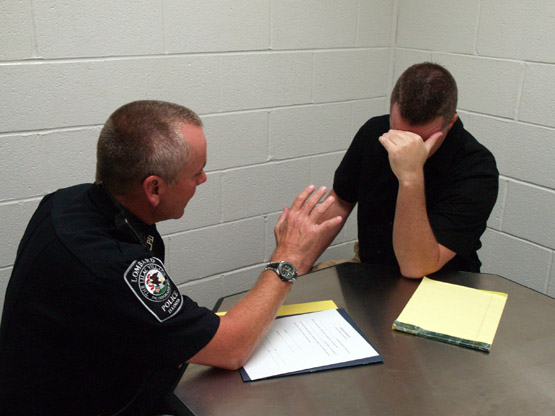Anything You Do NOT Say Can Be Used Against You
Picture this: A suspect is brought into a police station for questioning. The suspect is not under arrest, but the police spend a couple of hours asking the suspect questions. When the police ask if the bullets found at the murder scene came from one of the suspect’s firearms though, the suspect, who had previously answered all questions, becomes mute. Is this a confession of guilt, or an exercise of the right to remain silent?
The United States Supreme Court will be determining the answer this spring. In 1993, Genovevo Salinas was brought into a police station for questioning regarding the murders of Juan Manuel Garza and Hector Garza, two siblings living in Houston, Texas. Salinas was not under arrest and spoke freely until the police asked whether the ammunition cases found at victim’s apartments would be matched to Salinas’s shotgun. Salinas went silent.
After the questioning, police obtained a warrant for the shotgun and examination revealed that the ammunition cases likely came from Salinas’s shotgun. The police charged Salinas with murder in February 1993, but Salinas fled to Mexico before the police could locate him. Fourteen years later, in October 2007, Salinas was apprehended.
At Salinas’s second trial (first one was a mistrial), the Court allowed the prosecution to use the defendant’s silence as a confession. The judge held that the defendant’s answers and subsequent refusal to answer were all voluntary and thus the police had no duty to inform Salinas of his rights. The Court of Appeals affirmed the decision and the case has now moved to the Supreme Court.
 Although “pleading the fifth,” or invoking the right to remain silent, may seem straight forward, the decades following the famous Miranda decision has proven that suspects have a much harder time using the right than the average person might suspect. The primary problem is that it is often ambiguous whether the suspect wants to use the right or not.
Although “pleading the fifth,” or invoking the right to remain silent, may seem straight forward, the decades following the famous Miranda decision has proven that suspects have a much harder time using the right than the average person might suspect. The primary problem is that it is often ambiguous whether the suspect wants to use the right or not.
Scientific research on the matter has shown there are a number of ways that suspects can respond to an interrogation. Some suspects ask about their rights: “Do I have to answer these questions?” Other suspects make a request: “Can I go?” Still others add qualifiers, attempts to invoke the right in one part of questioning but not in others, to their statements: “I don’t want to talk about this today” or “I don’t want to talk about my driving.” And of course, some suspects simply engage in a (very long) staring contest with the police officer in front of them.
Although there are other attempts to invoke the right to remain silent, these four are the most popular. Each of these attempted uses of the right is problematic though. Asking about your right is not the same as invoking your right. A request to do something else could be viewed as just a short break between questions. And although it does not seem possible, actual silence is considered too vague to be an invocation of the right to remain silent. Courts have held that a suspect who is mute could be forming an answer to a question rather than refusing to answer a question.
So where does this leave Salinas? Salinas’ first problem is that he was not under arrest when he was questioned. Miranda rights are usually applicable when the suspect is held by the police against the suspect’s will. The second challenge is that the circumstances make Salinas look guilty. Sitting in silence after hours of questioning gives the jury the impression that the defendant realizes he is caught. The prosecution built on this impression and called it a confession.
There are two holes in the prosecution’s argument. One, there are alternatives to the view that the defendant was confessing. Salinas could have stopped talking because he realized that the police were trying to trap him. Or Salinas could have been implicitly qualifying his right to the fifth, responding to all questions except those regarding his firearms.
The second, and more important flaw, is that reading silence as evidence of guilt destroys the purpose of the right to remain silent. Under the prosecution’s vision, if a suspect talks, the suspect may be building his own prison cell around himself. If the suspect does not talk, the suspect is still putting laying down the bricks of his incarceration. In other words criminal defendants could be incriminating themselves during police questioning regardless of their decision to speak.
Salinas may not be the most sympathetic man, but his case could determine the future of an important Constitutional right.


Comments
If police is harassing with the same repetitive questions that suspect has already answered then he/she must talk to their lawyers and they can file a petition for that. This can be used as considering for bail bonds in the court room.